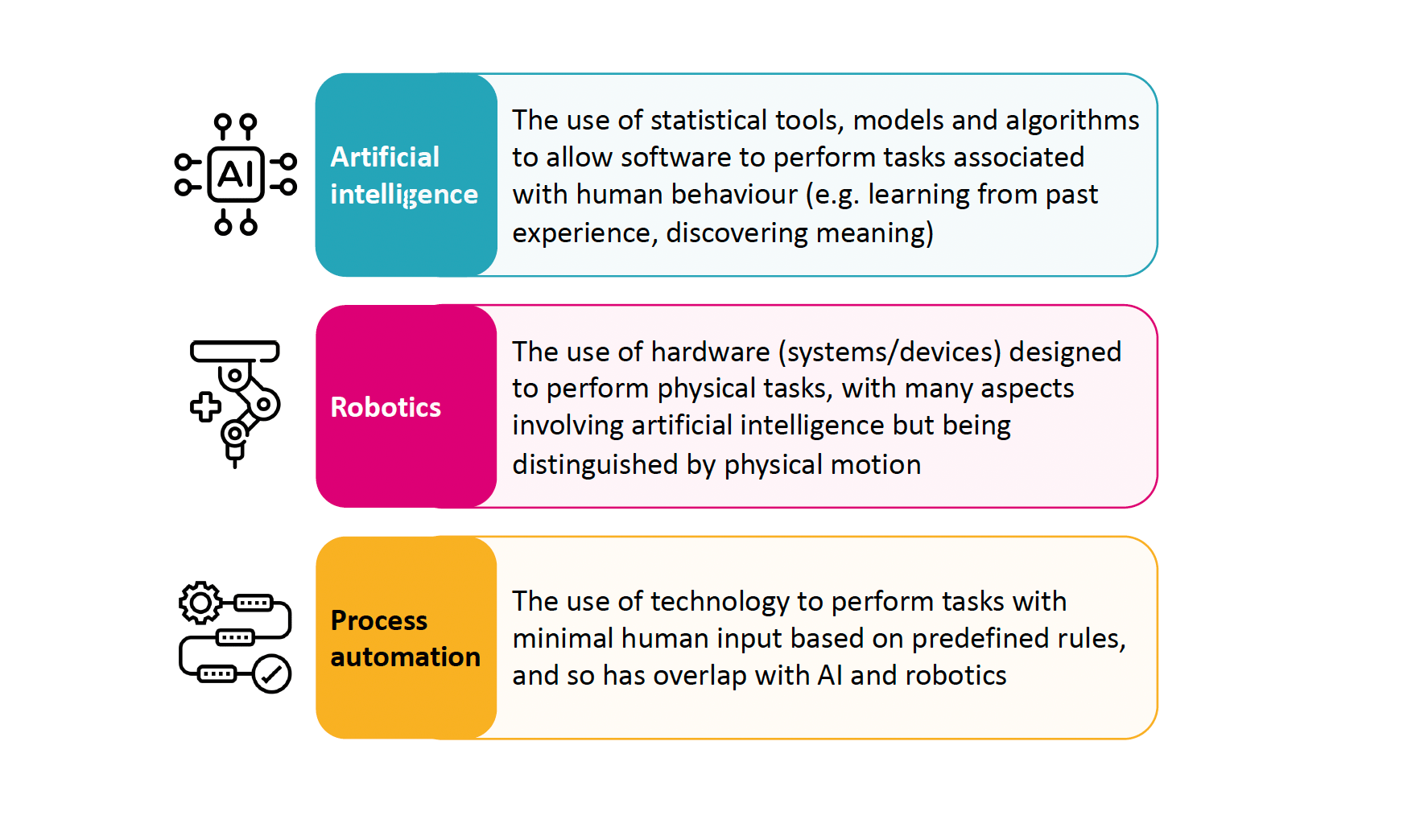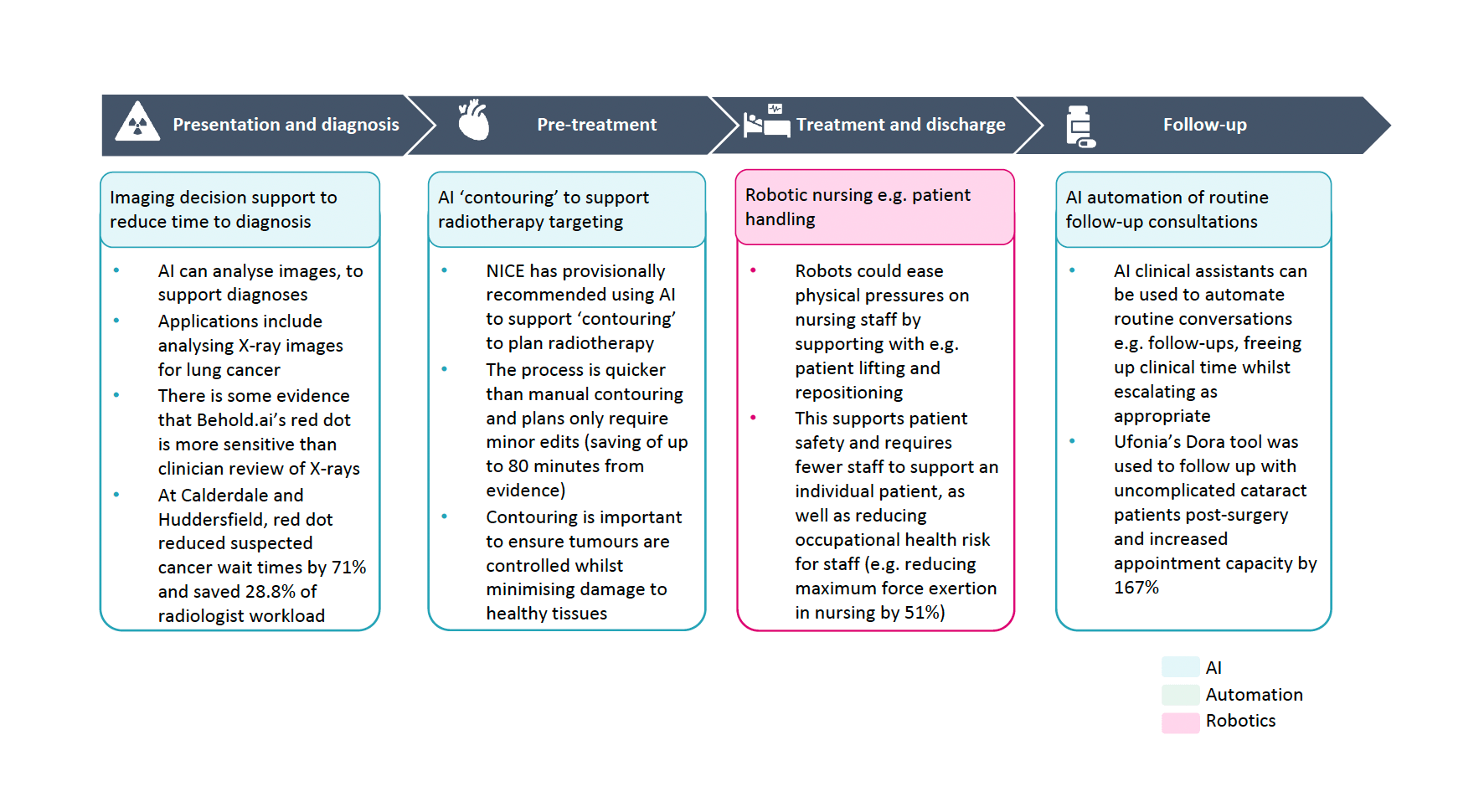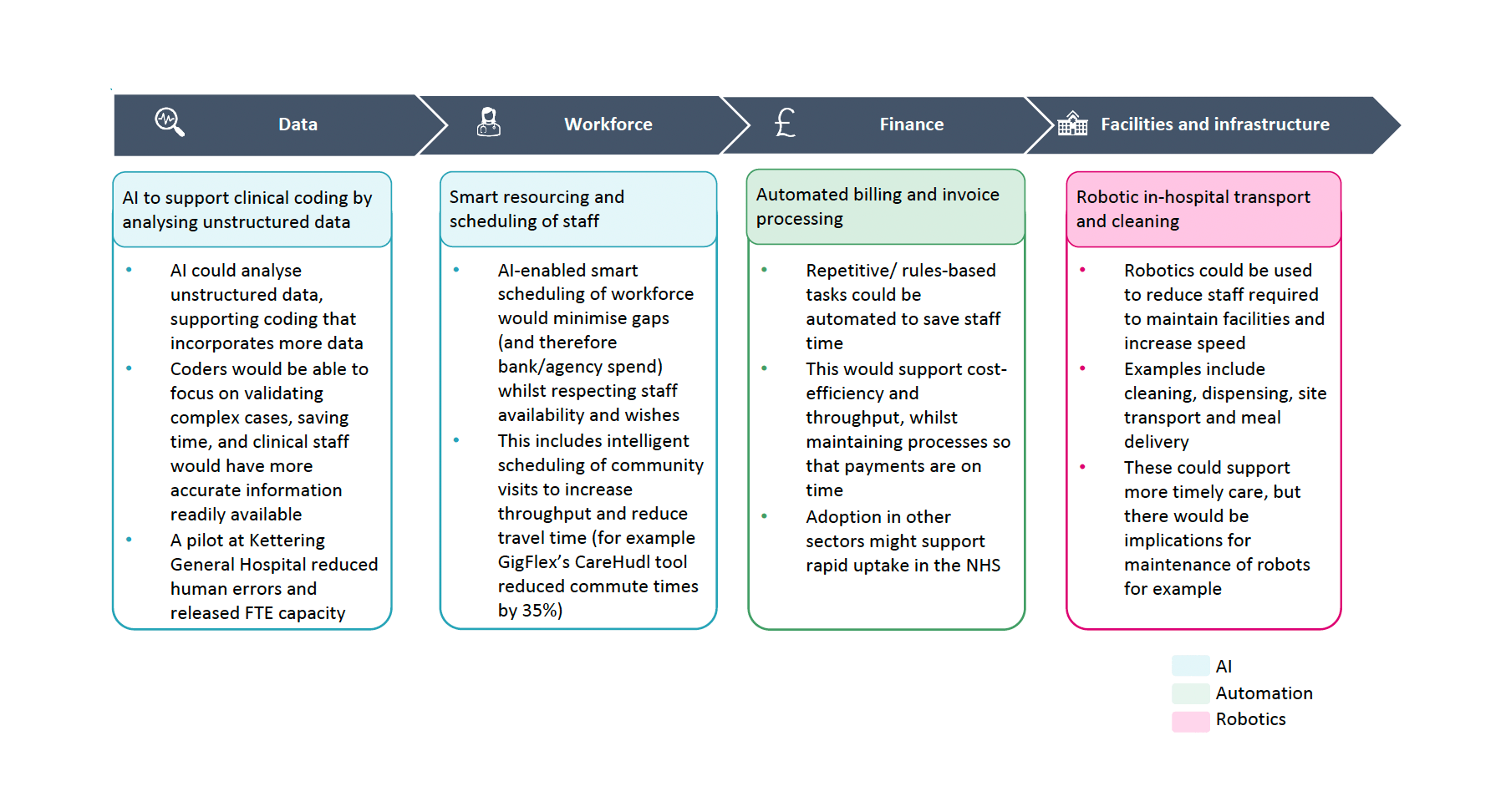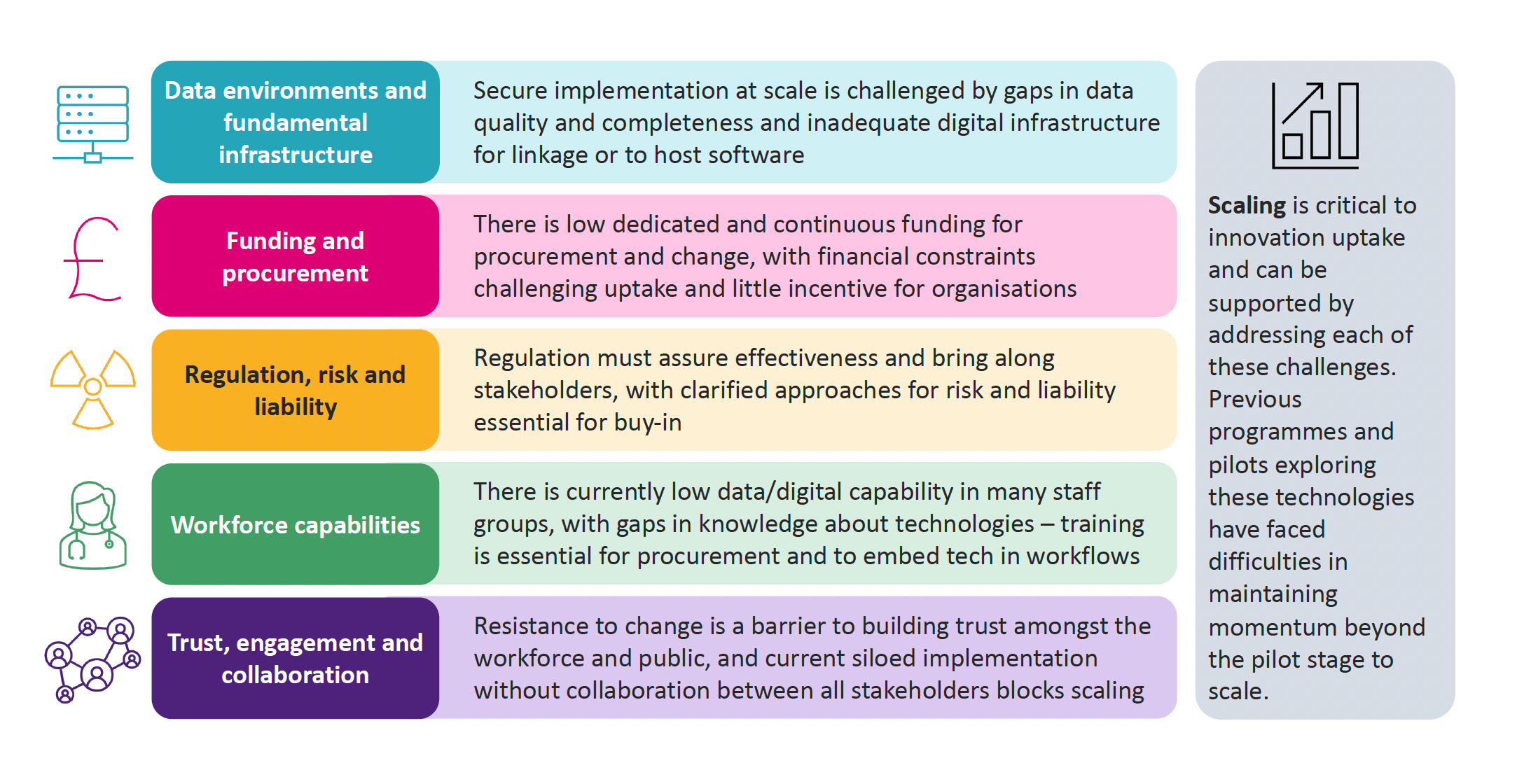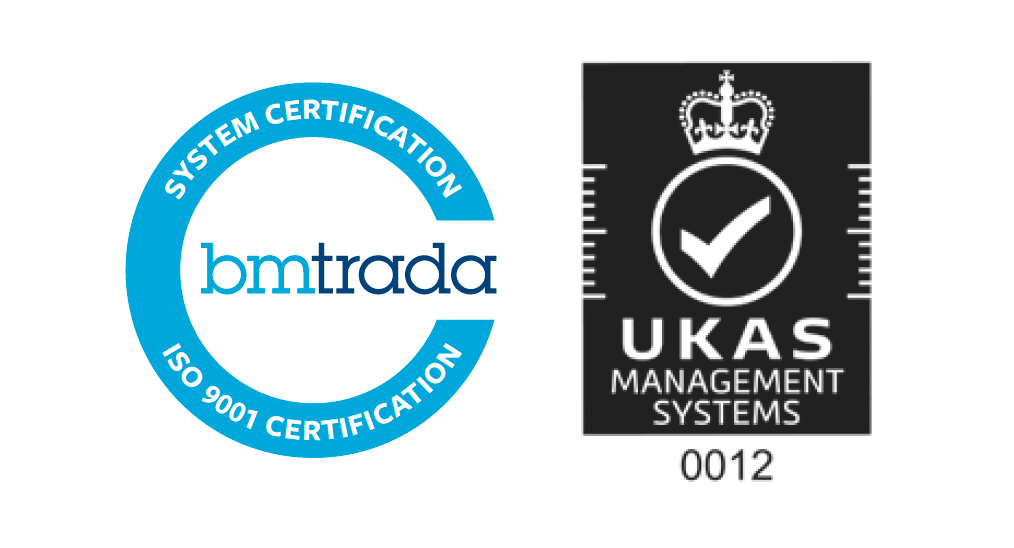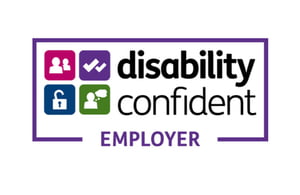The UK’s healthcare sector is at a pivotal point, with Artificial Intelligence (AI), robotics, and process automation poised to revolutionise healthcare delivery and the corporate functions that underpin it.
The NHS has the potential to be at the international forefront of system-wide transformation using these technologies. It represents a unique environment for innovation – it is a single-provider system with universal data coverage, it is supported by an established and growing Life Sciences industry and its regulators are among the most forward-thinking in use of data and technology in medicines.
Incoming innovations in these technologies promise many advantages, including more preventative and personalised care, support to clinicians and other staff, and reduced healthcare costs. Ultimately, they are expected to boost productivity in health services, and to improve patient health outcomes and experiences. As the NHS navigates significant operational challenges and strives to recover from the impact of the pandemic, the urgency of this work is clear. At CF, we recognise the potential for these technologies but also the need for a concerted and collaborative approach to change between the NHS, developers, regulators and investors.
We have identified several trends in these technologies that could be transformative across healthcare pathways and corporate functions:
Innovations could support some of the challenges in throughput, efficiency and workforce facing the acute sector, as well as the large backlogs for elective surgery and diagnostics. Innovations have the potential to increase productivity through reductions in time spent on routine tasks. Patients’ needs are increasingly complex, with growing numbers of patients presenting with multimorbidity – AI has the potential to better analyse this complexity to ensure patients receive timely and appropriate care that is personalised to their needs. Example applications are shown below:
Whilst the acute sector receives lots of focus, innovation must not be wholly focused here and uptake must be approached holistically to have the most transformative impact. These technologies can support improvements to the whole care pathway, and can help break down siloes between care settings to provide more holistic patient care in the most appropriate setting – increasing out-of-hospital and integrated care and shifting acute physical and mental health care towards catering for more acute and complex cases. For example, technologies could support remote mental health care where appropriate by delivering online cognitive behavioural therapy, predicting mental health outcomes and personalising treatment plans that are integrated with physical health and social needs – supporting the mental healthcare sector to face demand, capacity and quality challenges.
Innovation can also support long-term condition management through risk prediction using a wider range of sources of data that would not be possible without technology – prevention and early intervention reduce morbidity and mean suitable care can be put in place. Examples of applications in out-of-hospital care include optimising and personalising prescriptions, using AI to predict risks for population health management, care and rehabilitation robotics, remote digital monitoring, and AI clinical decision support for patients who might benefit from palliative care services.
There are also many opportunities within the supporting functions including workforce, finance, procurement and compliance that underpin the NHS. Optimising processes here would have particular benefits for productivity (e.g. through automating administrative tasks) and for quality (e.g. monitoring and automating compliance, and reducing mistakes in data). Some applications in supporting functions represent ‘low-hanging fruit’ that could be relatively simply adopted compared with clinical trends, therefore realising positive impact sooner and paving the way for clinical applications. Some examples are shown below:
Challenges in uptake
Despite these coming trends in technologies, challenges are holding the NHS back from realising their potential benefits at scale. Previous programmes and pilots exploring AI, robotics and process automation have struggled to scale, in turn challenged by inadequate data and digital infrastructure, unclear funding and procurement, unclear regulatory processes, a lack of capability amongst the workforce affected, and insufficient engagement and collaboration to bring along all stakeholders and share learnings between organisations.
These challenges can, however, be overcome to transform how care is delivered and create an NHS fit for the future by helping it deliver more for less. Now is the time for the NHS and partners to take action to realise the benefits of these trends. To make this a reality, each part of the health ecosystem needs to play their part.
Providers need to ask themselves:
- What are your priority areas for improving quality and productivity and how are you leveraging digital and data infrastructure to support?
- How will you build momentum behind pilots delivering tangible results, tuning into local and national Health Innovation Networks?
- What are the critical gaps in skills that must be addressed for your staff to embrace innovation and be primed for change?
Commissioners:
- Which areas are you prioritising to improve population health, patient experience and provider productivity?
- How are you developing the skills and capabilities to commission technologies and ensure what you are buying meets your needs now and in the future?
- How are you making sure your investments in technology are strategic, coherent and scalable?
- What are you doing to build a consistent foundation for collaboration and innovation for your systems?
Private sector innovators:
- What more can you do to really understand the strategic priorities of the NHS, so that your innovations have reach and longevity to them?
- What are you doing to consider interoperability and scalability rather than focusing on point solutions and narrow use cases?
- How are you helping to upskill the NHS to be good buyers, who know how to get the best from you and these technologies?
Get in touch with us today if you’d value a discussion to find out how you can utilise AI in your organisation.
